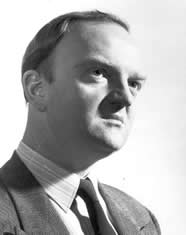
 |
Nation - 'Giving it a stir'Tom Fitzgerald was publisher and, with George Munster, founder-editor of the influential fortnightly 'independent journal of opinion' Nation from 1958 to 1972. Tom remembers his first meeting with George and how they came to work together on Nation.
George Munster was Tom's closest friend for over 26 years and his funeral tribute to George in 1984 he speaks of the man himself as well as his contribution to Nation. Nation provided an invaluable and unique outlet for many Australian writers. Some saw their writing in print for the first time in Nation; for others Nation was a means of developing their writing in a way not possible in other publications; others were able to publish articles the mainstream press would not print. In Nation’s final editorial (22 July 1972), Tom Fitzgerald describes the reasons for Nation’s inception, and its political stance. |
||||||||||||||||||||||||||||||||||||||||||||||||||||||||||||||||||||||||||||||||||||||||||||||||
 |
Tom Fitzgerald, 1950s John Curtin Prime Ministerial Library. Records of the Fitzgerald family. Tom Fitzgerald, 1950s. JCPML00720/67
|
|||||||||||||||||||||||||||||||||||||||||||||||||||||||||||||||||||||||||||||||||||||||||||||||
|
Tom recalls his involvement in Nation‘s beginnings and his reasons for starting the paper. 'It’s very difficult for a young person today to realise how stodgy and conservative, for the most part, the metropolitan press was. Very dull.' In establishing Nation, Fitzgerald resisted offers of financial support, prefering to run the paper his way, keeping Nation as his personal property despite the risks involved. Tom valued Nation's independence and rejected any attempts to interfere in his editorial freedom - 'having the freedom to produce your own paper, however small, is infinitely more rewarding than to be the nominal editor of any bloody metropolitan paper.' Peter Ryan, an early Nation contributor, has written that he ‘got a warm and comforted feeling from a reminder that Nation‘s story has been well and truthfully preserved for all time by Ken Inglis’s admirable history of the journal’ in his book Nation: The Life of an Independent Journal of Opinion, 1958 – 1972. Ryan writes:
Brian Johns has described Tom Fitzgerald as ‘that mighty journalist of our generation who, from the slender pages of the fortnightly Nation, helped shape a generation of journalists’. He notes the force of ideas once they have an outlet such as Nation and ‘the momentum they have in and of themselves to bring about great, great change’. Nation’s ‘pitiful’ circulation belied its influence:
Johns saw Nation as ‘a testament to the force of ideas and the force of independence’:
In his book Nation:The life of an independent journal of opinion, 1958 – 1972 Ken Inglis writes that ‘When he sought contributors, Fitzgerald was modest about the unborn paper’s personality. Sometimes he employed a homely simile which came to mind years later as he mourned Alf Conlon, disinterested intellectual and patriot (and in those respects an Australian Orwell)’:
Ken further writes that 'One way and another, by cross-pollenation and example, Nation helped to make the 1960s a time of hope in newspaper offices.' [7] Tom Fitzgerald was captured speaking on video at the book launch for Nation: The life of an independent journal of opinion, 1958 - 1972 on 22 November 1989. Footnotes1. Tom Fitzgerald's funeral tribute for George Munster. National Library of Australia: MS 7995. Records of the magazine 'Nation'. 2. John Curtin Prime Ministerial Library. Records of the National Library of Australia. Interview of Tom Fitzgerald, 01/02/1988 - 3/09/1988. JCPML00658/1. Original held by National Library of Australia TRC 2247. 3. Ryan, P. 2002, Quadrant, June 2002 --need complete citation here 4. Transcript of speech by Brian Johns at the launch of Reviving the Fourth Estate by Julianne Shultz, at Gleebooks, Sydney, Monday 21 September 1998. 5. George Munster Journalism Forums, 1998. 6. Fitzgerald, T, 1963, Nation, 7 September 1963 7. Inglis, K, 1989, Nation: The Life of an Independent Journal of Opinion, 1958 – 1972, Melbourne University Press, page 125 |
||||||||||||||||||||||||||||||||||||||||||||||||||||||||||||||||||||||||||||||||||||||||||||||||